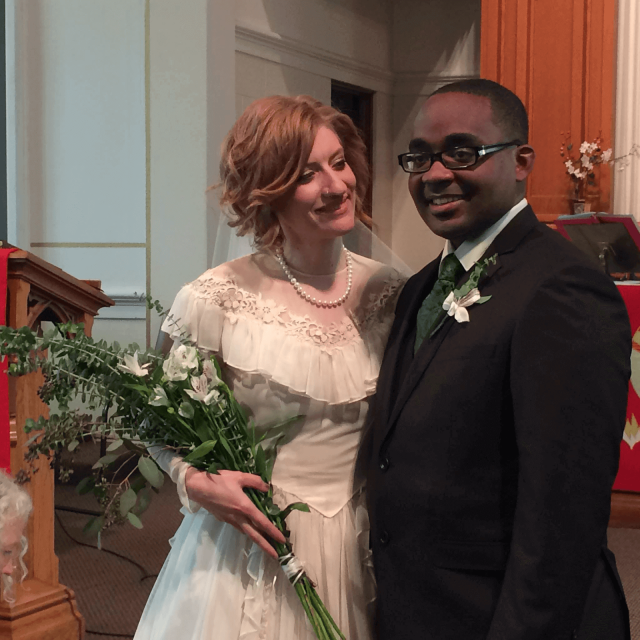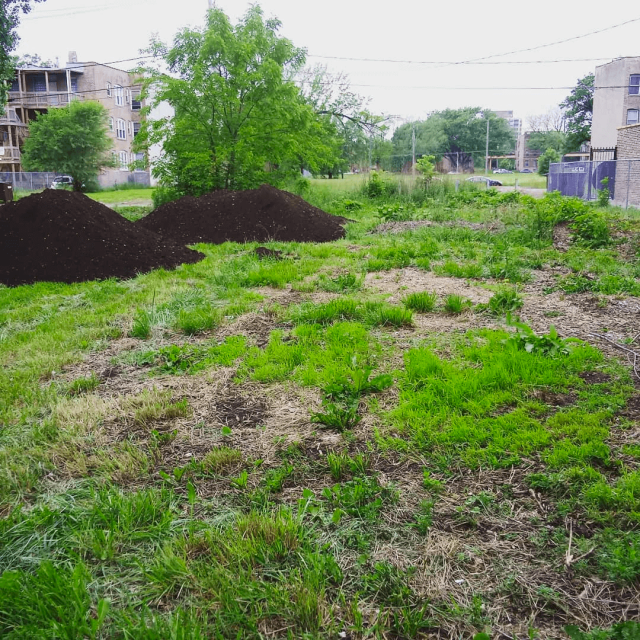Nearly 80% of U.S. flowers are grown overseas — here’s how one couple is trying to change that and save lives at the same time
When you think of the South Side of Chicago, you don’t usually think of flowers.
But that’s exactly what Quilen Blackwell, the co-founder and president of Southside Blooms, wants everyone to do.
Together with his wife Hannah, Blackwell is trying to transform the lives and the land in one of Chicago’s toughest neighborhoods — turning vacant lots into solar-powered flower farms that provide flowers to some of the fanciest hotels and institutions in the city, while giving victims of gun violence a fresh start.
“Our mission is to use sustainability to alleviate inner city poverty,” Blackwell told The Cool Down, “and we want to create an industry that we [Chicago] can be known for.”
Just as tech defines Silicon Valley and Napa is known for wine, he sees flowers as a defining opportunity for Chicago.
Quilen and Hannah met on a blind date. They were both doing ministry work in Chicago, and a friend thought their mutual interests would make them a great couple. A year and a half later, they were married and conspiring on how to make a difference, together.

“We were trying to figure out ways to preserve life — and the number one way we saw to do that was through sustainable economics and using nature in a creative way to help build a flower businesses,” he said.
After considering a few different business ideas, including urban farming, they landed on flowers, which they saw as a huge opportunity. The flower business is a $35 billion industry, but nearly 80% of cut flowers in the U.S. come from overseas.
“Why do we have to import them when we have this land available in the city?” Blackwell thought. “In Chicago, there are three to four acres of vacant land, and most of that is located in the South or West side of the city, which are predominantly Black neighborhoods,” he told us.
Enter Southside Blooms. “We come into one of those vacant parcels of land, rehab it, build a shed, put solar panels on top of the shed, set up totes for rainwater collection and use that rainwater to water the crops.”
The company’s practices are completely sustainable. Solar powers the operation. All of the flower clippings and food waste become compost to feed the chickens. The gardening methods don’t include any pesticides, herbicides, or synthetic fertilizers, and the company only uses reusable materials like chicken wire — no floral foam.
Ten years since Southside Blooms started, it employs about 20 youth and is on the preferred vendor list for about 40 different organizations around the city, from the Field Museum, the Hilton, and the Ritz Carlton.
Blackwell says Southside Blooms is bringing a lot of pride and hope for people in the community, with previous victims or perpetrators of gun violence now producing high-end events throughout the city. “One of the moms told us our work is literally saving lives, which means a lot to me and my wife.”
“Our whole point is to target some of the highest-risk youth in Chicago,” Blackwell told us. “Everyone is aware of the violence in the South Side, but one of the things I’m most proud of is seeing a lot of the youth who join our program see their talents shine on a bigger stage.”
Take Dionta White, a victim of gun violence and a father of two. “When he was ready to turn his life around, he got connected with us, and he’s been with us for a year and a half doing excellent work,” Blackwell told The Cool Down. “This has become an opportunity to stabilize his home situation. He’s a great example of the impact this is having on an individual level in our neighborhood.”

What’s next for Southside Blooms? With funding from The Honnold Foundation, the philanthropic organization started by renowned climber (and contributor to The Cool Down) Alex Honnold, it plans to hire more youth, build out its infrastructure, and expand its offerings to the West Side of Chicago. Its ultimate goal is to replicate its model in other cities across the U.S.
The team recently competed in an international flower show, winning fan favorite for creating a spectacular Nigerian bride from sustainable flowers.
“It was an opportunity to show the world that our youth can compete at the highest level,” Blackwell told us. “It shows what our youth are capable of, that they’re incredibly talented, and they can compete with anyone in the flower industry.”
For Quinlen and Hannah, their “whole life has been defined by Southside Blooms,” he said. “This has been our baby ever since.”
Join our free newsletter for cool news and actionable info that makes it easy to help yourself while helping the planet.

